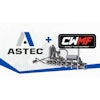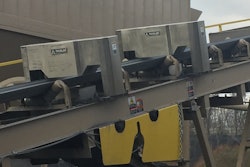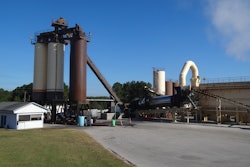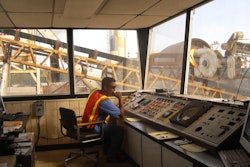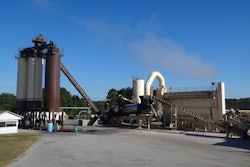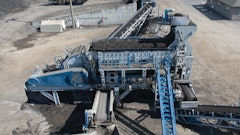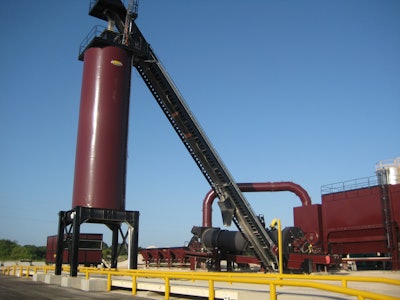
Asphalt paving contractors know the challenges of getting hot mix from a supplier. Long waits for material, high trucking costs and lack of control over mix quality can make paving projects incredibly frustrating. And, furthermore, relying on a competitor’s plant to fulfill asphalt requirements can reduce the profitability of the job and pose a risk to a business’s reputation for quality and timeliness.
Investing in an asphalt plant, whether portable or stationary, is a big step. It takes a lot of research and number crunching to determine if it makes sense for each operation. But after considering all the benefits of plant ownership, it’s easy to see how making that commitment pays dividends early on.
No more waiting in line
Getting hot mix when and where it’s needed is one of the quickest paybacks to owning a plant. It immediately improves an operation’s efficiency because its trucks won’t be stuck waiting at a supplier’s plant.
Paving crews buying from a supplier must sometimes wait for hours for a truck to return with a load of hot mix. Alternatively, they may have multiple trucks running at once to ensure a continuous supply, a costly system. Contractors who invest in a plant avoid the lines and keep their projects running without interruptions.
Control the mix quality
When a company owns the equipment, it has control over the quality and consistency of the asphalt mix, something that’s difficult to achieve when outsourcing. Plus, there’s no need to reassess supplier material for quality at every new site.
Over time, a company will develop its own arsenal of custom asphalt blends and specialty mixes, ensuring the optimal asphalt for every application. This opens the door for a business to differentiate itself from the competition with custom, high-quality blends.
It can eliminate the long haul
In addition to controlling mix supply and quality, contractors can choose a portable asphalt plant, rather than stationary equipment, to maximize their investment. The ability to take the asphalt production facility where it’s need is invaluable, especially in areas with seasonal work or a low population density.
A portable plant allows a contractor to stay in close proximity to the jobsite. This cuts down on haul times and can reduce the number of trucks needed to keep the road crew going with a sufficient supply of asphalt.
But is it worth it?
Return on investment is the issue everyone justifiably wants to talk about when it comes to asphalt plant ownership. With no shortage of variables, it can be difficult to account for everything. The efficiency of ownership shows itself in a number of different ways.
For example, shorter material transport times alone can greatly contribute to efficiency and a fast return on investment. Shorter hauls mean fewer trucks are needed, saving fuel, vehicle wear and labor costs. They also make road crews more productive, never leaving them waiting for materials.
These factors usually result in at least 50 percent better truck utilization for a paving contractor entering the production market. If, for example, truck costs are $70 to $75 per hour, it easily adds up to $1,500 per day.
Know the ROI landscape
Every scenario is different, but the majority of operations realize a return on a new asphalt plant in just a few years, and some will produce enough to cover the cost of the plant in a single year.
In general, contractors who consistently produce 50,000 tons of material per year find the investment well worth it. Depending on the situation, even those who produce less discover that the benefits of ownership outweigh the costs.
Ultimately, it’s important to work out the math with a product expert to see if ownership makes sense for an operation. A company could be foregoing thousands of dollars in annual profit by continuing to outsource.
Mike Devine is the president of Asphalt Drum Mixers. His 18 years of industry experience help him in his role overseeing all aspects of the company and ensuring customers receive the best service. Reach him at 260-637-5729 or [email protected].
